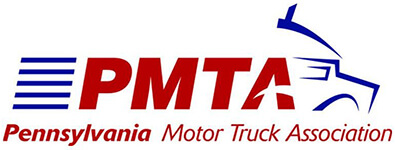2025-26 Budget Negotiations Stalled in Harrisburg
Key Legislative Issues for PMTA Emerge
Despite Pennsylvania’s constitutional requirement that a balanced budget be passed by July 1 each year, the state has rarely met that deadline in recent years. As the deadline approaches once again, negotiations over the 2025-26 state budget remain at a standstill in Harrisburg, and lawmakers are bracing for another protracted standoff.
Governor Josh Shapiro has proposed a $51.4 billion budget, representing an increase of nearly 7%—or $1.3 billion—over the 2024-25 fiscal year. However, the proposal, as presented, has little chance of passing in its current form. Several key provisions are already facing significant pushback from legislative leaders.
The Governor’s plan includes a $1.5 billion transfer from the state’s Rainy Day Fund, the legalization of recreational marijuana, and the legalization and taxation of skill games. And though it proposes to speed up the reduction of the state’s Corporate Net Income Tax (CNIT) tax to help make PA more competitive, it also proposes mandatory unitary combined reporting, which opponents call a “poison pill” of tax complexity and unpredictability. None of these proposals currently appear likely to be included in a final, negotiated budget package.
One of the more contentious proposals in the Governor’s budget involves transportation funding. The plan would reduce the previously agreed-upon step-down in state police funding from the Motor License Fund (MLF). Under current law, Pennsylvania is gradually removing funding for the State Police from the MLF to dedicate more revenue to highway and bridge projects. Last year’s budget reduced that transfer by $125 million, with the goal of eliminating it entirely by FY 2027-28. This year, however, the Governor proposes to reduce the transfer to just $50 million, slowing the phase-out significantly. Under his timeline, the state would not fully remove Pennsylvania State Police funding from the MLF until FY 2029-30. As a result, $75 million less than originally expected would be available this year for infrastructure improvements across the Commonwealth.
House Bill 1085, for example, would codify the phase-out of Pennsylvania State Police funding from the MLF. While reducing that transfer remains on the table, the specific amount to be included in the final budget has not yet been agreed upon.
The Governor’s plan also calls for a shift in how sales and use tax revenue is allocated. Specifically, it proposes increasing the share of those revenues dedicated to mass transit by redirecting an additional 1.75 percent to the Public Transportation Trust Fund—raising its total share from 7.68 percent to 9.43 percent. This would generate approximately $292 million in new transit funding in the first year, with that amount projected to rise above $330 million annually by FY 2029-30.
While urban lawmakers and transit advocates support the proposal, it has drawn criticism from legislators representing rural areas, where mass transit options are limited or nonexistent. Many of these lawmakers argue that the increased transit funding creates a deficit in the General Fund, with no clear plan to offset the lost revenue.
Several related pieces of legislation are also being considered as part of broader budget negotiations. For example, truck parking may also emerge as a budget-related issue. House Bill 709, which is strongly supported by the Pennsylvania Motor Truck Association (PMTA), would provide tax credits to private companies that build and maintain truck parking facilities in critical locations across the state. The bill is currently awaiting movement out of the House Finance Committee, and PMTA is actively encouraging lawmakers to consider it.
Another proposal aimed at generating new revenue for transit systems includes increasing the daily rental car fee from $2 to $6.50 and raising the lease tax on cars and light-duty trucks from 3 percent to 5 percent. At this point, the measure appears to have little support—particularly in the state Senate—and is unlikely to gain traction in this budget cycle.
During recent floor remarks, Senate Minority Leader Jay Costa acknowledged the need for additional transportation funding and expressed willingness to discuss road and bridge investments. However, he emphasized that mass transit funding—particularly in urban areas—must not be reduced. Costa urged lawmakers to develop a comprehensive funding plan before key deadlines approach for Pennsylvania’s various transit agencies.
In response, Senate Majority Leader Joe Pittman reminded his colleagues that Pennsylvania taxpayers are already contributing $1.5 billion annually to sustain mass transit operations. He stressed the need to balance funding discussions in a way that reflects statewide transportation needs and priorities.
As June unfolds, budget negotiations are expected to intensify, with the Governor and legislative leaders from all four caucuses engaging in more serious talks. However, few observers expect a budget to be finalized by the July 1 deadline. Many in Harrisburg now believe a final agreement may not come until late summer or even the fall.
In the meantime, PMTA continues to advocate on behalf of its members throughout the budget process. In addition to supporting HB 709, the association is pressing for action to repeal the seat belt “gag rule,” opposing drastic increases in the minimum wage, and championing funding for the proposed Near Zero Emissions Truck Incentive Program.
PMTA will continue to monitor developments and keep members informed as negotiations progress.
